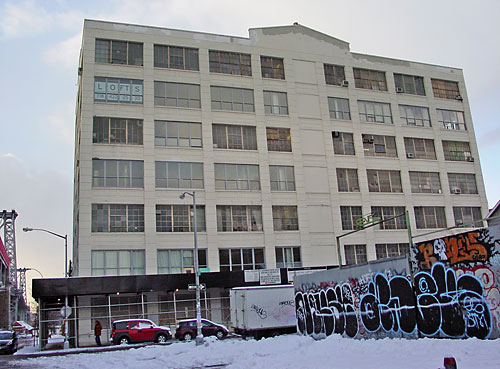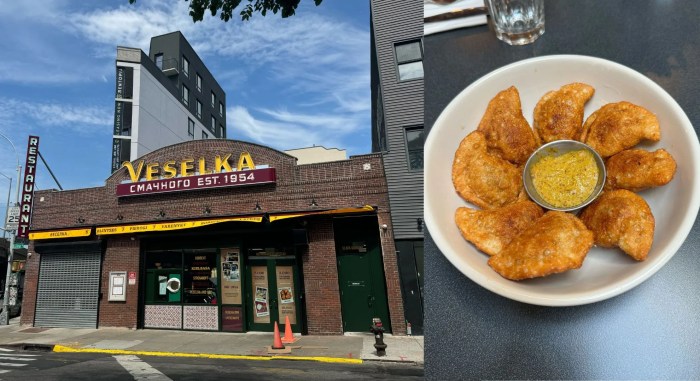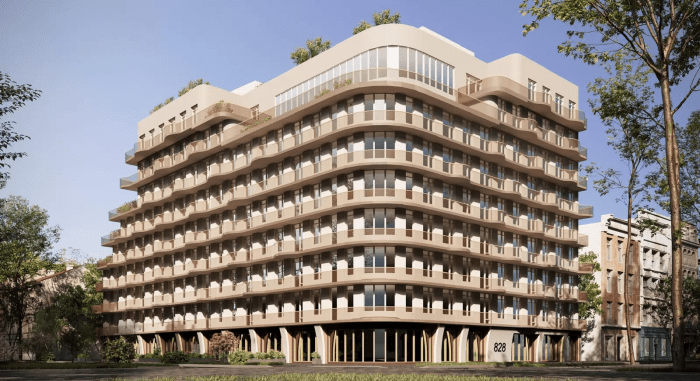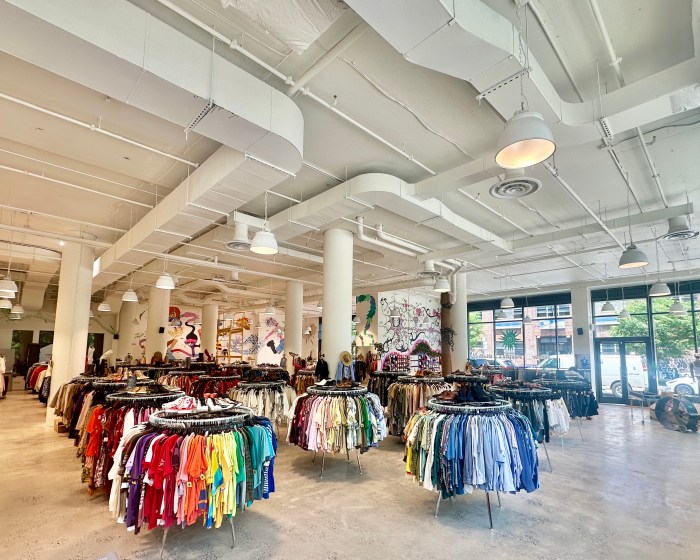A Williamsburg landlord is pressuring her tenants into leaving the converted former factory so she can turn the building into a luxury residence, tenants say.
Mona Gora-Friedman started harassing residents of her building at 338 Berry St. after they filed for protection under the state’s loft law, tenants say.
The law allows residents to remain in the building, even though it was illegally converted to apartments — if the landlord agrees, which Gora-Friedman did not.
Instead, she went to court demanding their eviction and cut off one tenant’s water.
The tenants have since filed a countermotion, which will be heard on Feb. 9
“[My neighbor] has no water,” said David Opdyke, a tenant in one of 16 units in the building. “We don’t know what to do about that. They’re starting to play hardball.”
The seven-story former noodle factory is emerging as the latest test of the Loft Law, which extends protection to residents in illegally converted buildings as long as they can prove their residency for 12 consecutive months.
And this week, Assemblyman Vito Lopez (D–Williamsburg) is introducing legislation that would give tenants protection against harassment tactics such as shutting off water and heat changing locks while their application is being considered by the Loft Board.
After the law was extended last year, critics predicted that landlords would retaliate by either harassing tenants or by taking advantage of a provision in the law that allows them to claim that the building has industrial uses that are dangerous to residents.
“If [this loophole is] so broad that it wipes out half the buildings covered, that’s not realizing the intention of the law, which is to protect residential tenants,” said loft attorney David Frazier, who represents the tenants.
Opdyke is concerned because a woodworking shop and a photography lab are operating on the first floor, even though they have a separate entrance.
Gora-Friedman, who purchased the building in 2005 for $12 million, could not be reached for comment. She is moving forward with an expensive renovation, filing permits in November to install solar panels and a new elevator bulkhead on the roof. She recently sent a letter threatening tenants to remove plumbing work and partition walls that had been installed in the past.
“It’s not the first time there has been some tension since the loft law passed.
In Bushwick, the owner of a two-story factory on Jefferson Street allegedly poured cement in her tenants’ showers and restarted a defunct belt factory on the first floor in an attempt to prove that the building has hazardous usage.
— with Michelle Manetti























